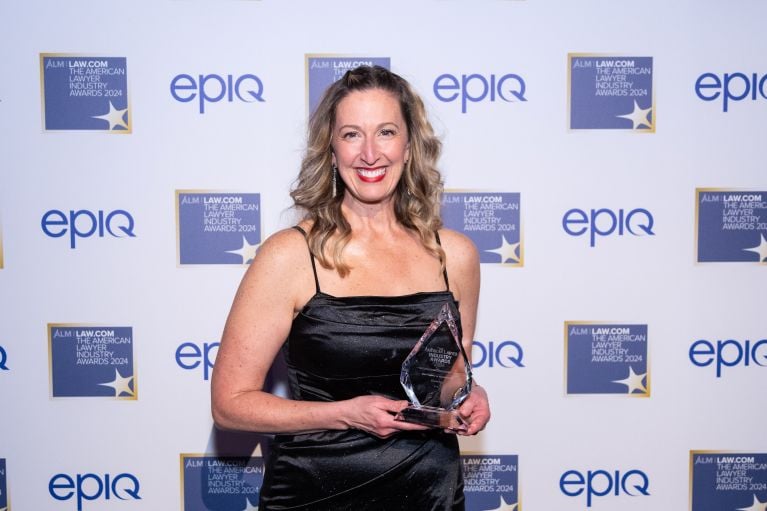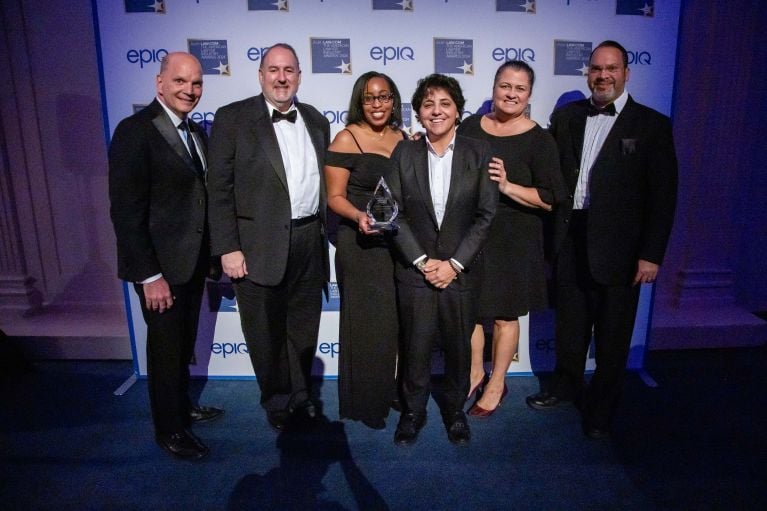 A continuing legal education event/courtesy photo
A continuing legal education event/courtesy photoWomen-Owned Law Firms Should Put on CLEs to Grab In-House Counsel's Attention
"We use it as an opportunity to include minority- or women-owned firms in that bid to give them exposure to our business. We'll talk to them about the case and see how they can compete as far as strategy and fee arrangements that they offer," Anne Bancroft, associate general counsel at Exelon, said of her litigation RFP strategy to include smaller women- and minority-owned law firms.
March 12, 2020 at 04:38 PM
3 minute read
Putting on continuing legal education courses that showcase junior associates and allowing for different clients to network with each other can give women- and minority-owned law firms an advantage in competing for business, in-house attorneys said at the 2020 Women-Owned Law Symposium in Philadelphia on Wednesday.
Competing for the business of in-house counsel can be challenging and many smaller firm owners are not sure where to begin, Lisa Love said in the "Best Practices for Partnering with Corporations and Big Law" session at Drexel University's Thomas R. Kline School of Law's Institute of Trial Advocacy.
Anne Bancroft, associate general counsel at Exelon Business Services Co. in Pennington, New Jersey, said one of the firms Exelon is looking to partner with in the future puts on a CLE every year in which clients get to meet each other. Last year she was invited and was so impressed that she now has it on her calendar for this year and invited her deputy general counsel and others in the legal department.
"You have networks that other clients are going to be interested in as well," Bancroft told the crowd.
Barbara Stevens, vice president and corporate counsel at Prudential Financial Inc. in New York, added that smaller firms putting on CLEs should find ways to make their CLEs specifically relevant to the companies they invite.
"Talk to the lawyers in-house and see what they want to know about," Stevens said. "Find out a little bit about the company so that you can make your presentations with facts relevant to them."
Stevens also said the women-owned firms that she works with at Prudential have junior associates play a small part in CLE presentations. She said in-house counsel want to see how younger law firm attorneys will grow into the partners they may work with in the future.
Speaking for their own legal departments, Stevens and Bancroft said in-house counsel are becoming more eager to partner with firms owned by diverse attorneys. Bancroft said one way Exelon looks for women- and minority-owned firms is by bringing them in person to bid on litigation alongside large law firms.
"We use it as an opportunity to include minority- or women-owned firms in that bid to give them exposure to our business," Bancroft explained. "We'll talk to them about the case and see how they can compete as far as strategy and fee arrangements that they offer."
At Prudential, Stevens said, it is a mandate to use diverse-owned firms.
"This has gone beyond the conversation of it's the right thing to do. It makes good business sense," Stevens said.
She said a number of studies show diverse in-house or law firm teams drive better results. She explained that when she goes to hire a minority- or women-owned law firm she is just not interested in getting a diversity credit.
"I'm talking about high-quality, smart lawyers who deliver results," Stevens said.
This content has been archived. It is available through our partners, LexisNexis® and Bloomberg Law.
To view this content, please continue to their sites.
Not a Lexis Subscriber?
Subscribe Now
Not a Bloomberg Law Subscriber?
Subscribe Now
NOT FOR REPRINT
© 2024 ALM Global, LLC, All Rights Reserved. Request academic re-use from www.copyright.com. All other uses, submit a request to [email protected]. For more information visit Asset & Logo Licensing.
You Might Like
View All
Digging Deep to Mitigate Risk in Lithium Mine Venture Wins GM Legal Department of the Year Award
5 minute read
Elaine Darr Brings Transformation and Value to DHL's Business

PepsiCo's Legal Team Champions Diversity, Wellness, and Mentorship to Shape a Thriving Corporate Culture
Trending Stories
Who Got The Work
Michael G. Bongiorno, Andrew Scott Dulberg and Elizabeth E. Driscoll from Wilmer Cutler Pickering Hale and Dorr have stepped in to represent Symbotic Inc., an A.I.-enabled technology platform that focuses on increasing supply chain efficiency, and other defendants in a pending shareholder derivative lawsuit. The case, filed Oct. 2 in Massachusetts District Court by the Brown Law Firm on behalf of Stephen Austen, accuses certain officers and directors of misleading investors in regard to Symbotic's potential for margin growth by failing to disclose that the company was not equipped to timely deploy its systems or manage expenses through project delays. The case, assigned to U.S. District Judge Nathaniel M. Gorton, is 1:24-cv-12522, Austen v. Cohen et al.
Who Got The Work
Edmund Polubinski and Marie Killmond of Davis Polk & Wardwell have entered appearances for data platform software development company MongoDB and other defendants in a pending shareholder derivative lawsuit. The action, filed Oct. 7 in New York Southern District Court by the Brown Law Firm, accuses the company's directors and/or officers of falsely expressing confidence in the company’s restructuring of its sales incentive plan and downplaying the severity of decreases in its upfront commitments. The case is 1:24-cv-07594, Roy v. Ittycheria et al.
Who Got The Work
Amy O. Bruchs and Kurt F. Ellison of Michael Best & Friedrich have entered appearances for Epic Systems Corp. in a pending employment discrimination lawsuit. The suit was filed Sept. 7 in Wisconsin Western District Court by Levine Eisberner LLC and Siri & Glimstad on behalf of a project manager who claims that he was wrongfully terminated after applying for a religious exemption to the defendant's COVID-19 vaccine mandate. The case, assigned to U.S. Magistrate Judge Anita Marie Boor, is 3:24-cv-00630, Secker, Nathan v. Epic Systems Corporation.
Who Got The Work
David X. Sullivan, Thomas J. Finn and Gregory A. Hall from McCarter & English have entered appearances for Sunrun Installation Services in a pending civil rights lawsuit. The complaint was filed Sept. 4 in Connecticut District Court by attorney Robert M. Berke on behalf of former employee George Edward Steins, who was arrested and charged with employing an unregistered home improvement salesperson. The complaint alleges that had Sunrun informed the Connecticut Department of Consumer Protection that the plaintiff's employment had ended in 2017 and that he no longer held Sunrun's home improvement contractor license, he would not have been hit with charges, which were dismissed in May 2024. The case, assigned to U.S. District Judge Jeffrey A. Meyer, is 3:24-cv-01423, Steins v. Sunrun, Inc. et al.
Who Got The Work
Greenberg Traurig shareholder Joshua L. Raskin has entered an appearance for boohoo.com UK Ltd. in a pending patent infringement lawsuit. The suit, filed Sept. 3 in Texas Eastern District Court by Rozier Hardt McDonough on behalf of Alto Dynamics, asserts five patents related to an online shopping platform. The case, assigned to U.S. District Judge Rodney Gilstrap, is 2:24-cv-00719, Alto Dynamics, LLC v. boohoo.com UK Limited.
Featured Firms
Law Offices of Gary Martin Hays & Associates, P.C.
(470) 294-1674
Law Offices of Mark E. Salomone
(857) 444-6468
Smith & Hassler
(713) 739-1250







